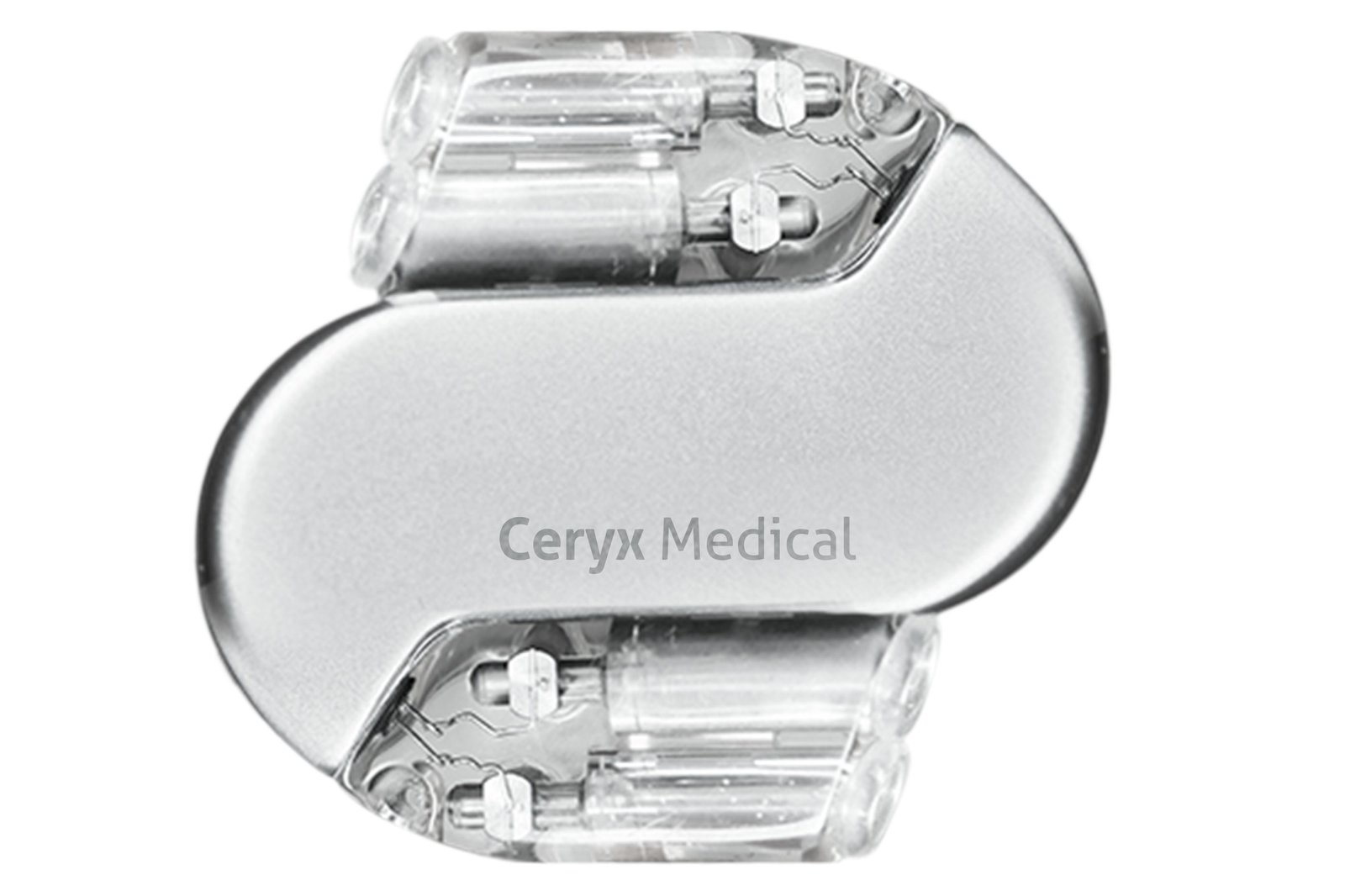Scientists breaking barriers to treating heart failure
16 February 2022 | Wednesday | News

Device offers hope to patients with heart failure.
Ceryx’s co-founder Julian Paton, Professor of Translational Physiology at ABI, began studying the relationship between the heartbeat and respiration more than a decade ago. He has since worked with his team at UK-based Ceryx Medical to develop ‘Cysoni’ – a unique cardiac rhythm management device. Pre-clinical data showing a dramatic improvement in directly recorded cardiac output in heart failure has now been published in the international journal, Basic Research in Cardiology.
https://link.springer.com/
Professor Paton said, “We are delighted to have our data published, and hope that the advancements we are making in cardiovascular treatment will excite the global healthcare community, as well as giving hope to patients themselves. Five years of rigorous testing have led us to the stage of being ready to begin clinical trials later this year.”
Cysoni is a bionic device that paces the heart with real-time respiratory modulation. The innovation stems from the idea that heart rate increases and decreases with each breath in normal physiology, termed ‘respiratory sinus arrhythmia’ (RSA). Cysoni replicates this natural interaction, triggering heartbeats based on respiratory function, as opposed to the usual ‘metronomic’ generation by traditional pacemakers. This sets Cysoni apart from existing devices, which generate an output with no breath-by-breath induced variation in the inter-beat interval. In essence, Cysoni listens and responds to the cardiorespiratory system and optimises its performance.
The team’s studies found that RSA pacing increased cardiac output by 20%, compared to monotonic pacing. This increase in output led to a significant decrease in heart failure-associated symptoms such as apnoeas and significant improvements in performance during exercise. It also reversed cardiomyocyte hypertrophy and restored the T-tubule structure that is essential for force generation. This repair of the cardiac damage indicative of heart failure is particularly exciting.
Of the 26 million heart failure patients worldwide, around 50% die within five years of diagnosis. Dr Stuart Plant, CEO of Ceryx Medical, believes that Cysoni stands to dramatically improve not just the existing health and wellbeing of cardiology patients, but also their prognoses.
Dr Plant explained, “We are seeing, at single heart cell level, repair to the structure of that cell because of the reinstatement of RSA via Cysoni. It’s a huge scientific breakthrough. The improvement in the function of the heart combined with the repair of the heart muscle stands to dramatically improve therapy for patients with cardiac diseases such as heart failure. And while cardiology remains our firm focus for the time being, we anticipate our technology being used to treat conditions including hypertension and spinal cord injuries, and even dementia.”
Professor Gianni Angelini, British Heart Foundation Professor of Cardiac Surgery at the Bristol Heart Institute and the National Heart and Lung Institute, Imperial College London said, “This is a very important result because current pacemakers never give us such a large improvement in cardiac pumping. If this translates across to humans it may define the way we pace hearts in the future.”
The first clinical study involving the Cysoni technology will begin later this year involving patients from hospitals in the UK, Australia, and New Zealand.
Most Read
- How Does GLP-1 Work?
- Innovations In Magnetic Resonance Imaging Introduced By United Imaging
- Management of Relapsed/Refractory Multiple Myeloma
- 2025 Drug Approvals, Decoded: What Every Biopharma Leader Needs to Know
- BioPharma Manufacturing Resilience: Lessons From Capacity Expansion and Supply Chain Resets from 2025
- APAC Biopharma Review 2025: Innovation, Investment, and Influence on the Global Stage
- Top 25 Biotech Innovations Redefining Health And Planet In 2025
- The New AI Gold Rush: Western Pharma’s Billion-Dollar Bet on Chinese Biotech
- Single-Use Systems Are Rewiring Biopharma Manufacturing
- The State of Biotech and Life Science Jobs in Asia Pacific – 2025
- Asia-Pacific Leads the Charge: Latest Global BioSupplier Technologies of 2025
- Invisible Threats, Visible Risks: How the Nitrosamine Crisis Reshaped Asia’s Pharmaceutical Quality Landscape
Bio Jobs
- Sanofi Turns The Page As Belén Garijo Steps In And Paul Hudson Steps Out
- Global Survey Reveals Nearly 40% of Employees Facing Fertility Challenges Consider Leaving Their Jobs
- BioMed X and AbbVie Begin Global Search for Bold Neuroscience Talent To Decode the Biology of Anhedonia
- Thermo Fisher Expands Bengaluru R&D Centre to Advance Antibody Innovation and Strengthen India’s Life Sciences Ecosystem
- Accord Plasma (Intas Group) Acquires Prothya Biosolutions to Expand Global Plasma Capabilities
- ACG Announces $200 Million Investment to Establish First U.S. Capsule Manufacturing Facility in Atlanta
- AstraZeneca Invests $4.5 Billion to Build Advanced Manufacturing Facility in Virginia, Expanding U.S. Medicine Production
News











